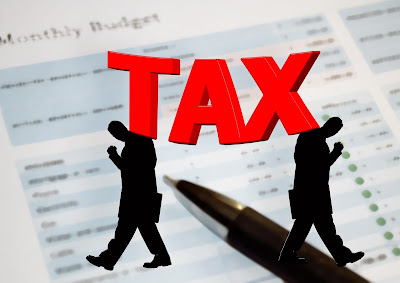by Ateet Kapadia, Listen to Podcast, Issuewire
As an entrepreneur, one of the most important tasks
is to manage your finances effectively. One aspect of financial management is
tax planning. Paying taxes is an unavoidable part of doing business, but there
are ways to reduce the tax burden legally. In this article, we will discuss
some tax-saving strategies for entrepreneurs.
Keep Accurate Records
The first and most important step in saving taxes as
an entrepreneur is to keep accurate and detailed records of all income and
expenses. This will help you to identify deductions and credits that you may be
eligible for. There are several tools and software available to help you with
record-keeping, such as QuickBooks, FreshBooks, and Xero.
Take Advantage of Deductions
Entrepreneurs can claim various deductions to reduce
their taxable income. Some of the most common deductions include home office
expenses, vehicle expenses, travel expenses, and business-related meals and
entertainment. To claim these deductions, you must maintain proper records and
ensure that the expenses are related to your business activities.
Contribute to Retirement Accounts
Contributing to a retirement account can not only
help you save for your future but can also reduce your taxable income. As an entrepreneur,
you can choose from several retirement accounts, such as a solo 401(k),
SEP-IRA, or SIMPLE IRA. These accounts offer tax-deferred growth, meaning you
won't pay taxes on the money until you withdraw it in retirement.
Hire Family Members
Hiring family members can be an effective tax-saving
strategy for entrepreneurs. You can pay your family members a reasonable salary
for the work they do, which will reduce your taxable income. Additionally, you
can also provide them with other benefits, such as health insurance, which can
be tax-deductible.
Take Advantage of Tax Credits
Tax credits are a dollar-for-dollar reduction in the
amount of tax you owe. There are several tax credits available to
entrepreneurs, such as the Research and Development (R&D) tax credit, the
Work Opportunity Tax Credit (WOTC), and the Small Business Health Care Tax
Credit. These credits can significantly reduce your tax liability, so it's
worth exploring if you're eligible.
Incorporate Your Business
Incorporating your business can offer several tax
benefits, such as lower tax rates and greater deductions. As a corporation, you
can deduct business expenses, such as salaries, bonuses, and health insurance
premiums, which can help to reduce your taxable income. Additionally, corporations
are taxed at a lower rate than individuals, which can result in significant tax
savings.
Time Your Income and Expenses
Timing your income and expenses can also help you
save taxes. If you have a good year and expect to earn more income than usual,
you may want to delay some of your income until the next year to reduce your
tax liability. Similarly, if you expect to have a lower income next year, you
may want to accelerate some of your expenses to claim deductions in the current
year.
In conclusion, saving taxes as an entrepreneur
requires careful planning and attention to detail. By keeping accurate records,
taking advantage of deductions and tax credits, contributing to retirement
accounts, hiring family members, incorporating your business, and timing your
income and expenses, you can significantly reduce your tax burden and keep more
of your hard-earned money. It's always a good idea to work with a tax
professional to ensure that you're maximizing your tax savings while staying
compliant with the law. With the right strategies in place, you can focus on
growing your business while also achieving your financial goals.



